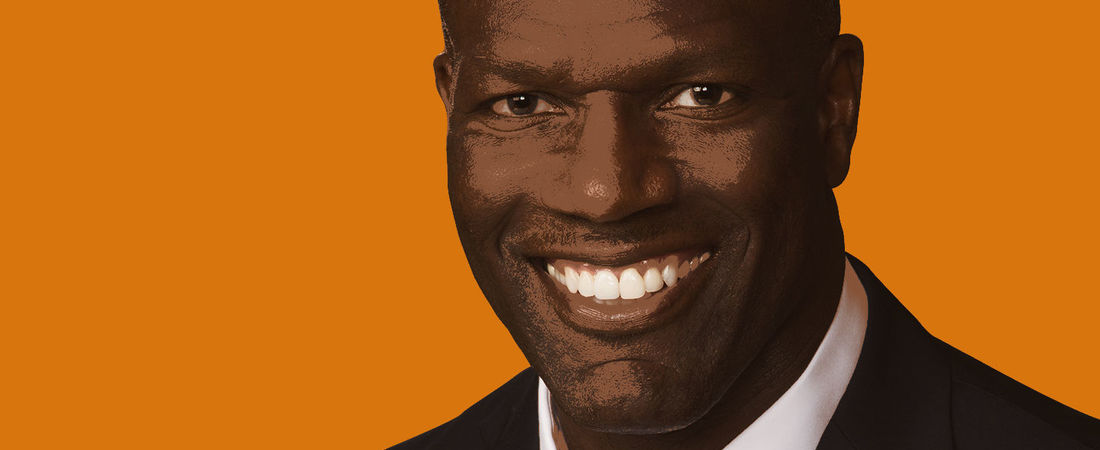The young people who come to Wernle Youth & Family Treatment Center in Richmond, Indiana arrive in desperate need of help. They may have suffered abuse or neglect, gotten into legal trouble, struggled with substance abuse or behavioral disorders, and fallen behind in school.
But when they leave a few months later, their lives are transformed. They’ve received much-need counseling, built crucial skills, and begun the process of building a better future for themselves.
This transformation is a joy to witness, says Darrell Gordon ’88, ’89 M.S. (Administration), Wernle’s president and CEO. Gordon, a former linebacker known to Fighting Irish fans as “Flash,” played on the 1988 national championship football team and has spent the last 17 years leading Wernle as it works to make a difference.
“The kids who come to us are sent traditionally by the judicial system,” he says. “And as a result of us being the last stop, many of the kids who come have been abused, neglected, or abandoned, and the key to their coming is whether they are amenable to treatment. If an agency or department feels like this kid can be saved, and we want to give this kid an opportunity to be saved, then they will invest in that child to come to our facility. And when they come to our organization, we have folks to really wrap their arms around our kids.”
As Wernle’s CEO, Gordon oversees a staff of 170 who serve 90 to 100 young people, most of whom come from Indiana or Ohio.
“Our goal has always been to provide high-quality care,” Gordon says. “We want to be the Mayo Clinic of the world for residential treatment. We try to cover the spectrum. Next year will be our 140th year, and we’ve been known for dealing with the more difficult children in the state, where others may not deal with that population.”
A stay at Wernle offers a holistic approach to treatment. Incoming children meet with counselors who assess the traumas and challenges they’re facing and determine which treatments will help them. Staff members create an individualized education program for each child, working with Richmond Community Schools to provide specialized help. Group therapy is provided for a variety of issues, including anger management and alcohol abuse.
Specialized programs help sexual abuse survivors or those dealing with suicidal thoughts, allow young people to cope with conduct disorders, and enable young people to build independent living skills. And residents enjoy a variety of extracurricular activities on Wernle’s 100-acre campus, including basketball, football, music therapy, and pottery.
“It’s an intense program where they come in and traditionally we try to provide treatment for them for approximately 9 to 10 months, and then we reintegrate them back into their respective homes if in fact that’s the next step for them,” Gordon says. “If not, then we may find another opportunity with kinship care or group homes or independent living.”
Wernle also offers family therapy that ensures children who are returning home will have a better chance for success, Gordon says.
“So often, we do an unbelievable job transforming a child,” he says. “But a key component to that is, when we transform the child, we send them back to a dysfunctional environment that they left. And now it’s like all the work you’ve done is for naught. So what we try to do is take the family—normally an indigent or non-affluent family—and we transport them in free of charge, we feed them free of charge, and we have apartments on campus free of charge. So there’s no reason why the family can’t be involved in the process. We feel like if the family’s involved, then there’s a greater chance for success with the child.”
At Wernle, Gordon says, success means that a child leaves for a less restrictive environment.
“If a child leaves us and he goes back home, or to kinship care, or is living on his own, in an apartment, we define that as success,” he says. “And we are now beginning to work on the longevity of that. How long can the kid remain out of the judicial system? The recidivism rate is so important in this process. Scientifically, if a kid does not re-enter the system after more than six months of support and help, the probability of success is greater.”
As Wernle’s CEO, Gordon says he focused on building up the organization’s infrastructure and programming and implementing best practices to make it a national leader in residential treatment for youth. In so doing, he has drawn on support from members the Notre Dame family in raising money and awareness—among them former football players Tim Brown ’88, Mike Golic ’85, Joe Montana ’79, and Daniel “Rudy” Ruettiger ’76; former head football coaches Gerry Faust, Lou Holtz, Tyrone Willingham, and Charlie Weis ’78; and fellow alums Regis Philbin ’53 and Nicholas Sparks ’88, as well as sportscaster and ND parent Dick Vitale.
After almost two decades at Wernle, Gordon says, he feels the same way he did when he began. The opportunity to make a difference in his daily work is priceless.
“I had the opportunity to tell a close friend of mine that for 17 years, I haven’t gone to work,” he says. “Because it’s that fulfilling. That’s why I’ve stayed. Knowing that when I leave, there’s going to be a child who will come back one day and say, ‘you don’t know who I am, but you changed my life for the rest of my life, and for that I am thankful’—you can’t buy that ever.
“That’s what Notre Does does to us. It humanizes us to be able to understand the value not just of money, but of transforming people. When that becomes our priority, everything else falls in line. It’s just been a blessing that I have this opportunity. We’ve been able to transform hundreds of thousands of kids and families and give them a chance at a better life. And for that I’m grateful.”
To learn more about the work the Wernle Youth & Family Treatment Center does to help troubled youth, please visit its website.



